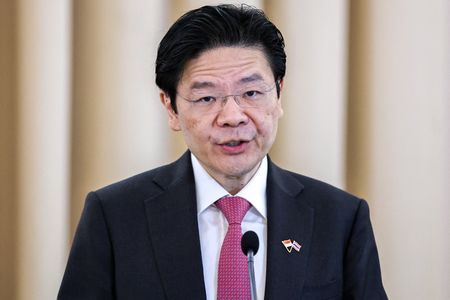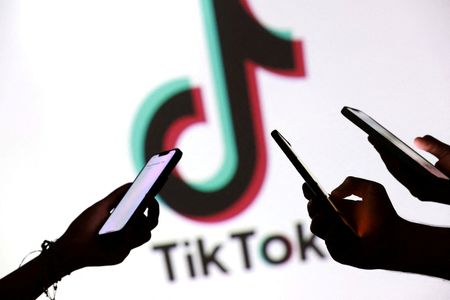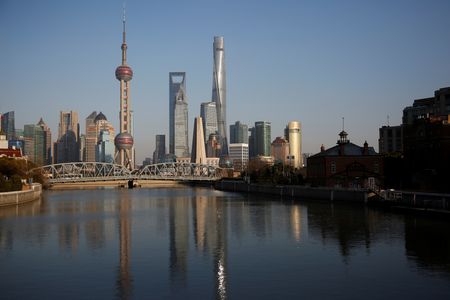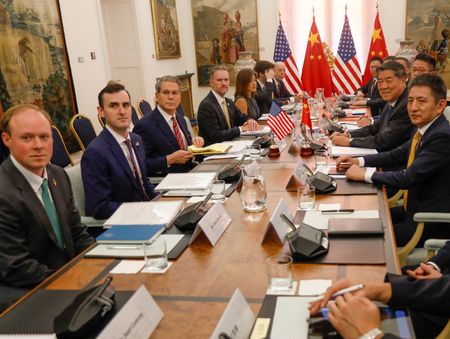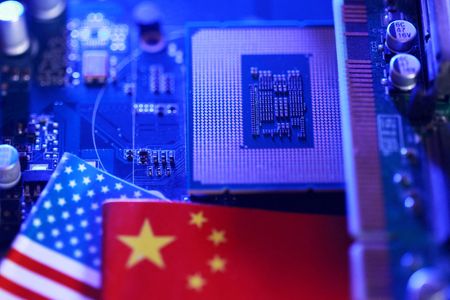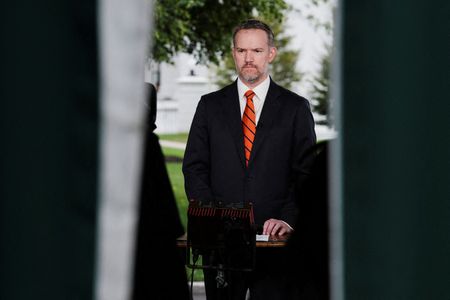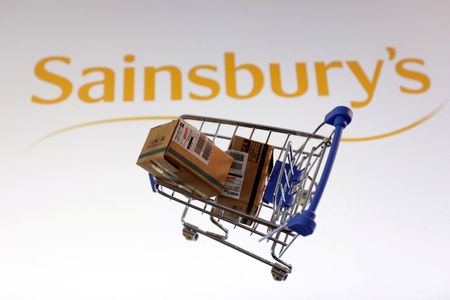By Xinghui Kok, Fanny Potkin and Rae Wee
SINGAPORE (Reuters) – Singapore offered broad support for workers and businesses, as well as assistance with living costs, with the economy bracing for a rise in global tensions and ahead of elections this year.
Prime Minister Lawrence Wong, also the finance minister, announced S$1.06 billion ($790.2 million) in vouchers for households to offset grocery and food costs, and S$2.02 billion in “SG60” vouchers – marking Singapore’s 60th anniversary, with citizens receiving at least S$600 each for groceries and necessities.
Maybank economist Chua Hak Bin called it “a full-blown election budget” with vouchers, tax rebates and cash handouts.
OCBC economist Selena Ling said the goodies “cover all segments of Singaporeans from babies to seniors”.
The budget is Wong’s first as premier after taking the top post last year. It comes ahead of a general election that must be held by November and will be widely seen as a barometer of his popularity.
His People’s Action Party is almost certain to dominate and win most seats, as it has in every vote since independence in 1965, although its share of the popular vote will be closely watched after one of its worst ever electoral performances in the last contest in 2020.
Babies born this year will receive a special “SG60” gift, and the government plans to build more new public housing. He also announced personal income tax rebates.
Wong gave corporate tax rebates and pledged longer-term programmes aimed at boosting skills of workers, promoting Singapore equities and the semiconductor sector and protecting the island nation against climate change.
Wong put S$1 billion into semiconductor and biotech sectors including building a fabrication facility, and injected S$10 billion into funds to finance coastal and flood protection and clean energy initiatives.
Singapore accounts for about 11% of the global semiconductor market, with 20% of global semiconductor equipment manufactured in the country.
“This budget will help to mitigate the impact of rising costs, but in the longer term, the best way to adjust to higher prices is to grow the economy and increase productivity,” Wong said.
DOWNSIDE RISK
The budget leaves the government with a projected surplus of S$6.81 billion or 0.9% of GDP.
Chua of Maybank said that gives the government dry powder they can tap on “in case the economy goes astray in a more uncertain world”.
Wong warned that Singapore’s economy would be impacted by global tensions as the U.S. and China intensified their battle for global supremacy and were prepared to take more assertive actions to advance their interests.
“We can expect escalating attempts at containment and counter containment with ripple effects that will inevitably draw in other countries, including Singapore,” Wong said.
“All these pressures will reshape the global economy and dampen prospects for global growth. As a small and open economy, we will feel the impact.”
Singapore’s GDP accelerated to 4.4% in 2024 from a revised 1.8% in 2023, but the trade ministry expects growth in 2025 to moderate to 1.0% to 3.0%, a forecast Wong reiterated on Tuesday.
Although inflation tapered to a three-year low in December, the population of about 6 million people is still dealing with higher costs, with consumption tax going up by two percentage points in 2023 and 2024.
($1 = 1.3415 Singapore dollars)
(Reporting by Xinghui Kok, Rae Wee and Fanny Potkin; Additional reporting by Bing Hong Lok; Writing by John Mair and Martin Petty; Editing by Jacqueline Wong)

